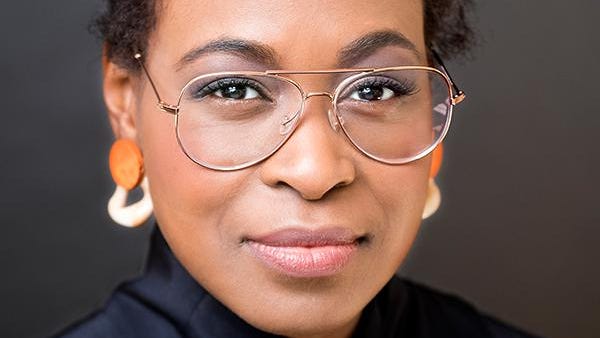Errin Haines is editor-at-large for The 19th, a nonprofit newsroom covering politics and centering … [+]
Errin Haines
Errin Haines is no stranger to uncomfortable conversations about race or the influence of Black women in politics.
Her mission is to change how Americans talk about gender, politics, and policy. The award-winning Atlanta writer previously reported for The Associated Press focused on the intersection of race, politics, and culture. Today Haines is the editor-at-large for The 19th, a nonprofit newsroom covering politics and centering women. She envisions a space for underrepresented voices who continue to be marginalized in American politics and political journalism.
While Haines was on her journey as a founder of The 19th, she was chronicling the stories of other trailblazing Black women. Her highly anticipated 2022 book Twice as Good will give an account of Black women’s political journey as voters, organizers, and candidates from the perspective of the landmark achievement of Vice President-elect Kamala Harris.
Below she explains why she wanted to write a book that would be received by all Black women, not just those interested in politics.
Christine Michel Carter: While working on Twice as Good, you were appointed by Princeton University as a professor on Black women and the 2020 election. Can you tell me about that experience?
Errin Haines: I was honestly surprised by the level of interest even before the semester began! So many students were interested in the topic and the group of young women I ended up with was so amazing. Everyone brought their lived experience to a safe space that made for a robust dialogue that I looked forward to every single week.
Carter: How did the responses of the Generation-Z students compare to that of voters you encountered on the campaign trail?
Haines: Frankly, their optimism and hope for the future was not exactly what I was getting from voters I was interviewing on the campaign trail in terms of their feelings about the direction of the country. They honestly helped to shape my perspective on the election, as I was teaching that class during the 2020 Democratic presidential primary. Their insights on the debates or campaign events, and the role of race and gender in the election were so refreshing — particularly because many of them would be casting a ballot for president for the first time in that election.
Carter: Why did you personally feel this was the right time to publish a book?
Haines: I don’t think I chose the timing; I think the timing chose me. The worst kept secret in journalism is that most of us think we have a book in us that we will write at some point, even if we have no idea what that book is. My topic also found me. After a few years of focusing on the rising political power of Black women as organizers, candidates, and voters, and then covering Kamala Harris’ run for president and her historic path to the vice presidency, I truly felt like I was the right person and that this was the right time to tell this story. Soon, we’ll find out, and I hope readers will agree!
Carter: Outside of politics, did any other pivotal societal factors influence Twice as Good?
Haines: I think that whether you’re a politics junkie (like me!) or not, this is a story that will resonate. So many of the Black women I have written about had to make certain choices along the way, both personally and professionally, to achieve success. They’ve been the “first” or “only” (as in the only one in the room) either in terms of race or gender in their respective fields, and in talking with them, I’ve learned that there are also similar lived experiences that come with that.
Carter: Who are some of the women you interviewed? What common themes surfaced for all women, not just women in politics?
Haines: I talked to organizers like Glynda Carr of Higher Heights, for example, who has found herself completely exhausted in the pandemic while working to get Black women elected and Melanie Campbell of the Black Women’s Roundtable has dealt with the toll of Covid-19 in her own family while juggling pushing for voting rights. The common thread in talking to all of them is that they’re like so many Black women who just keep going despite personal challenges because they don’t know what else to do and don’t stop to think about how any of this may be affecting them. They’re used to being the strong ones who lead by example and have had to learn the hard way to prioritize self-care. This is the story of a lot of women, particularly women of color, at this moment, who are navigating racism amid the rest of life’s current challenges and are overwhelmed and yet persevering.
Carter: Black moms parent politically; we are ambitious and trying to change the world for our children. For Black moms parenting amidst racial injustice, disproportionate setbacks, and a global pandemic, what words of encouragement can you offer them to inspire their political journey?
Haines: My mom was a Black mom parenting amidst those setbacks, save a global pandemic. I would say to them: We see you. Your lived experience will always have a home at The 19th. We are committed to telling your story because you matter. You have always been essential to this society. You have always been the keepers of this democracy and the fabric of our workforce. Without you, I am not a founding mother of this organization or the journalist who is empowered to do her best and highest work.




